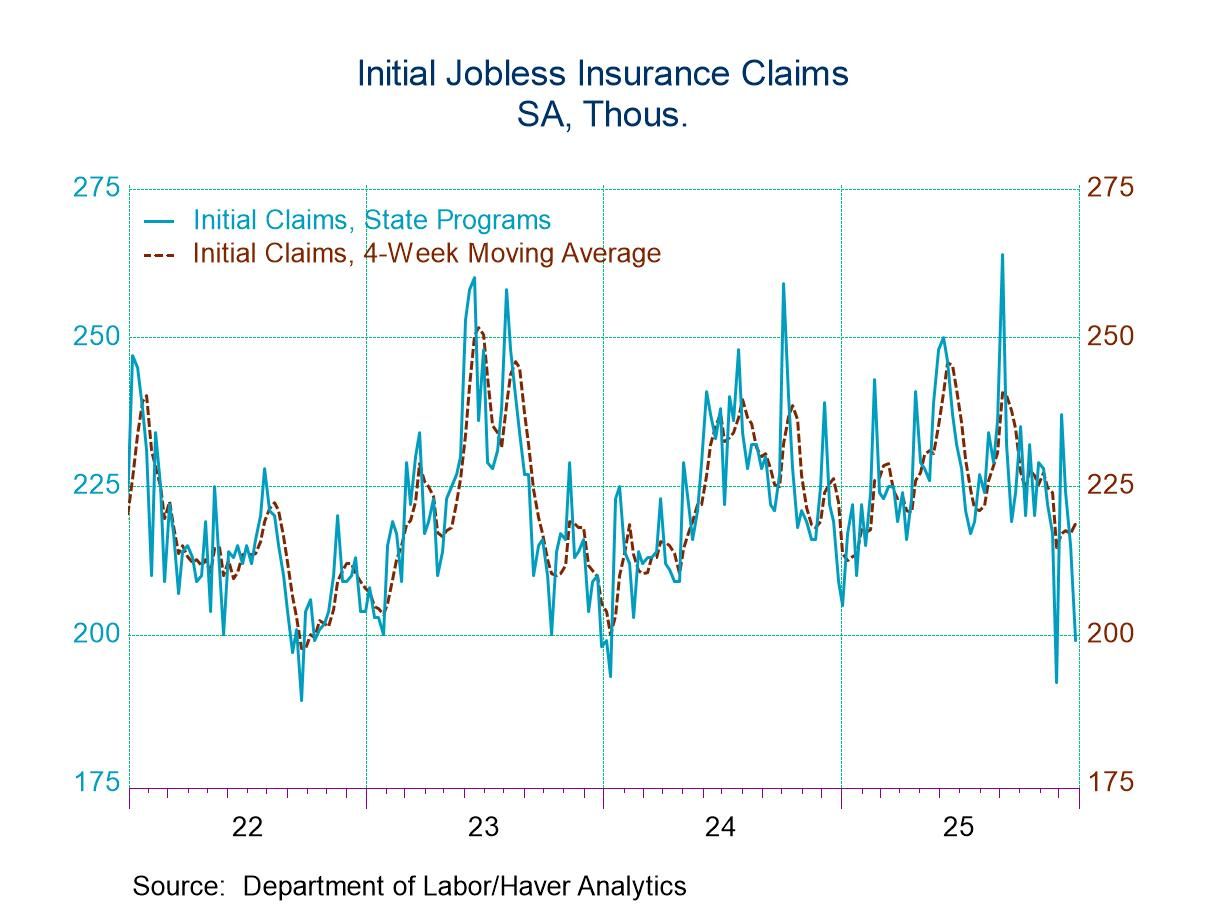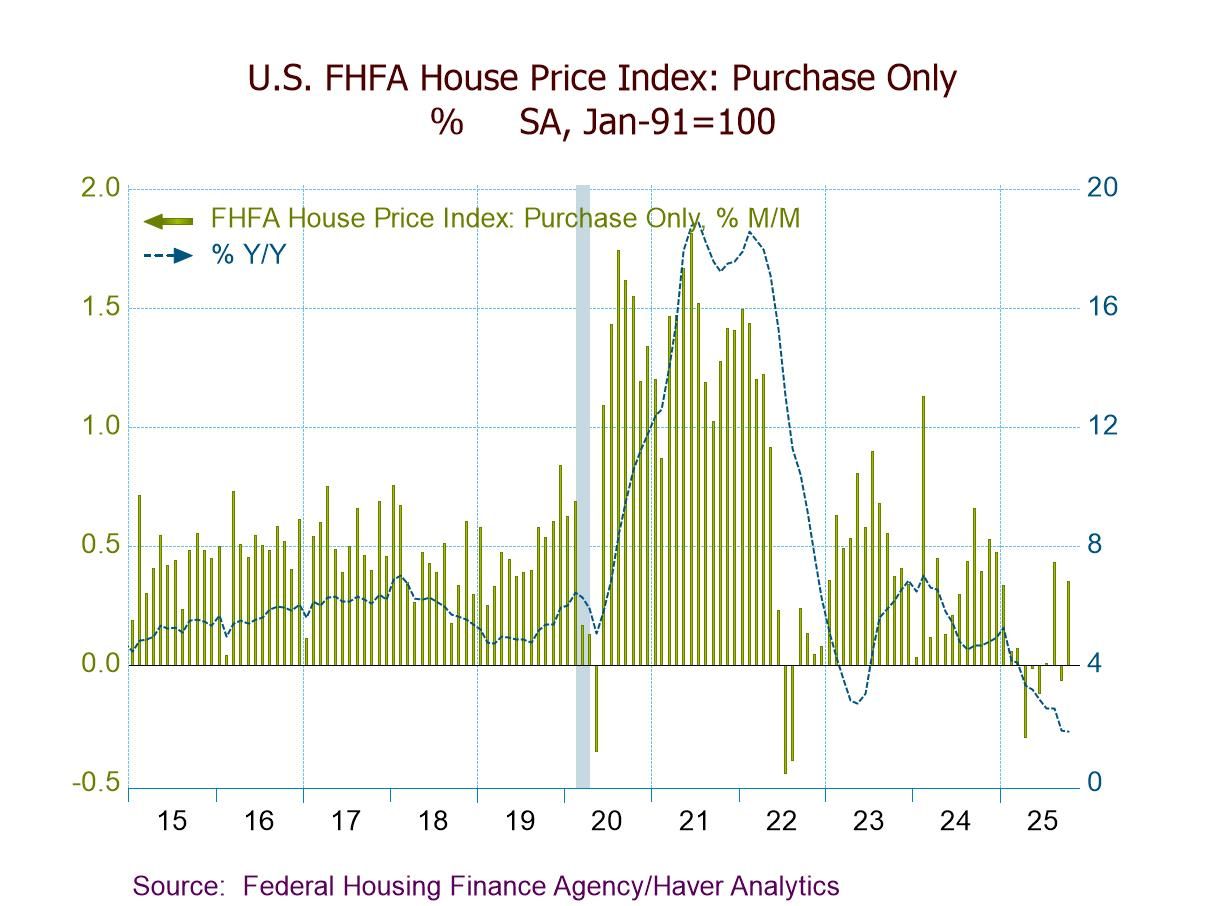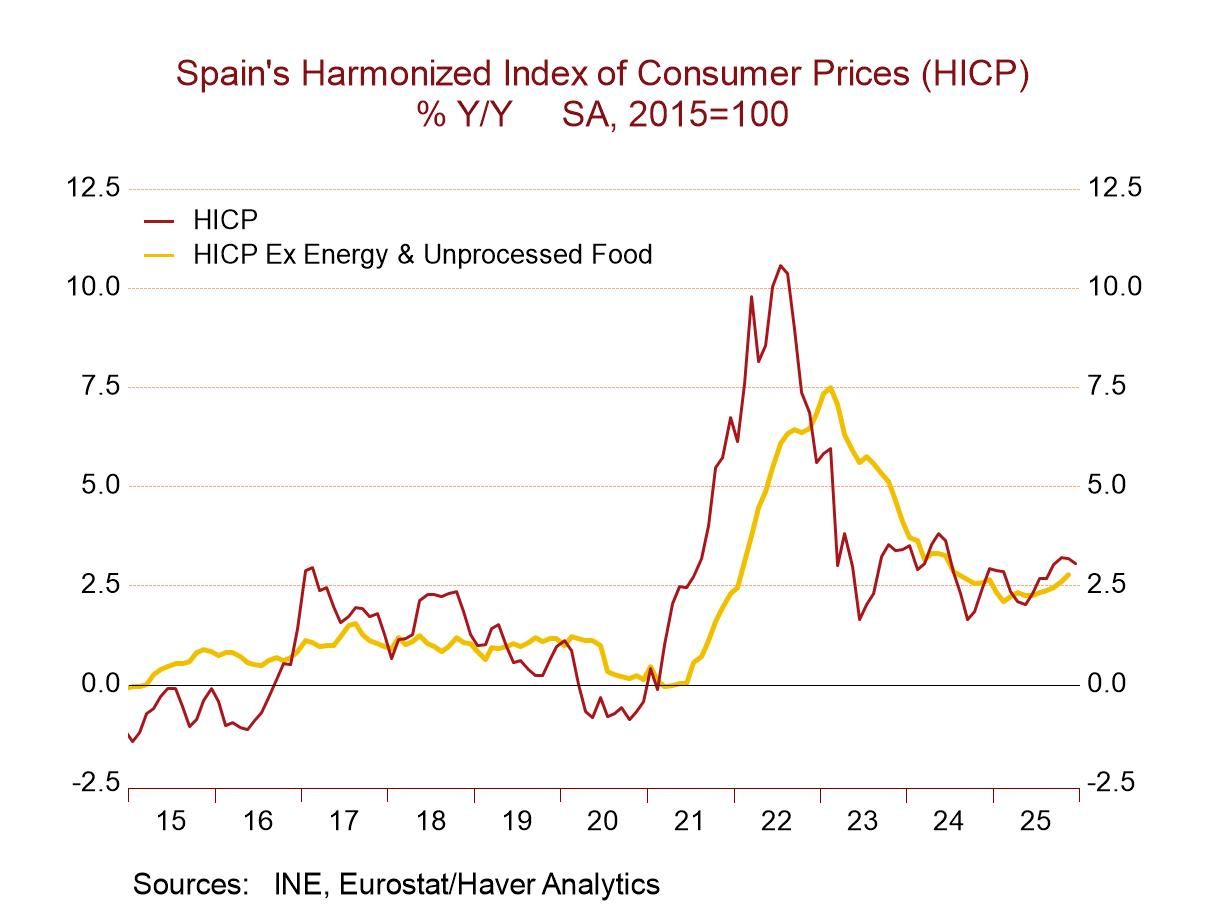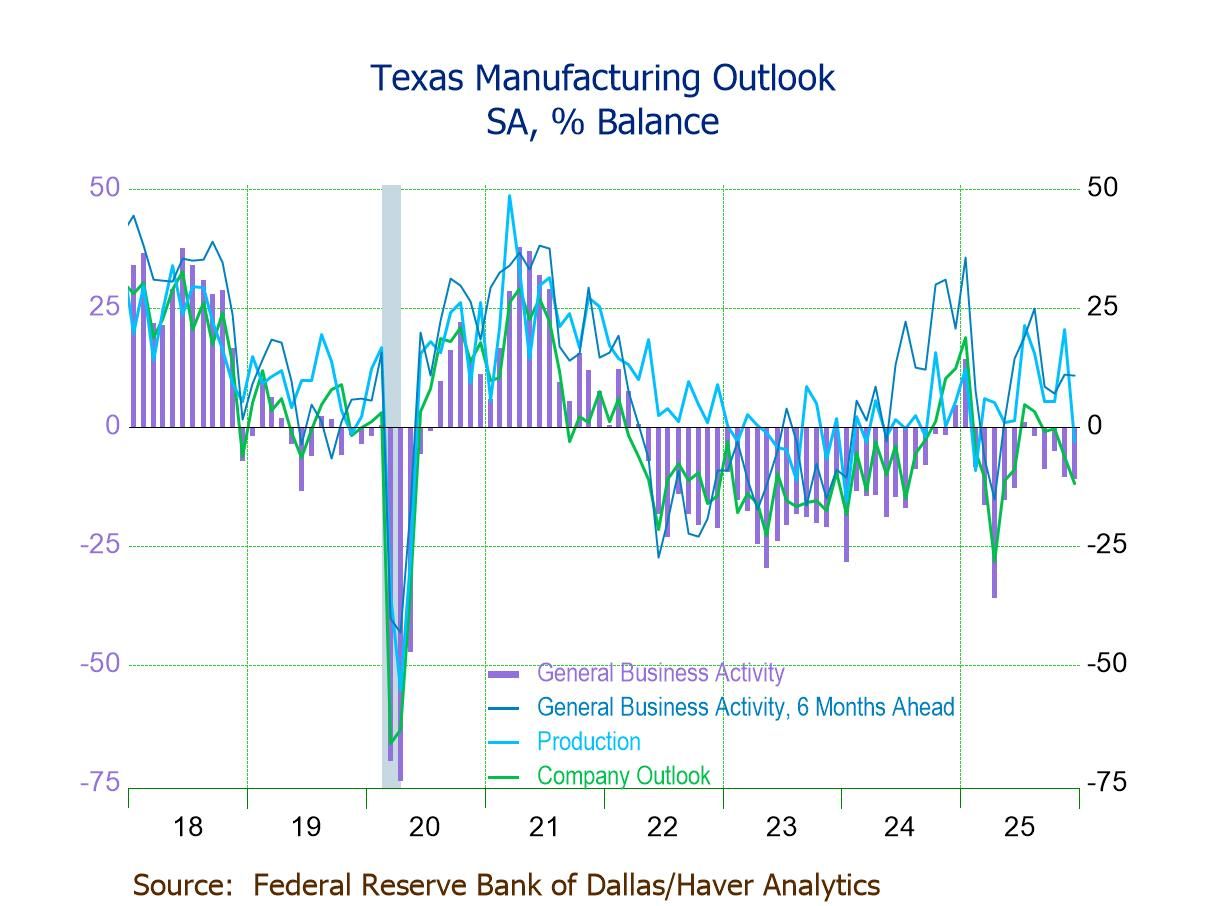 Global| Jan 18 2002
Global| Jan 18 2002Foreign Trade Deficit Fell Slightly
by:Tom Moeller
|in:Economy in Brief
Summary
The US foreign trade deficit fell as expected versus October that was little revised. Exports rose moderately, but remained down 14.8% from their peak in August 2000.Exports of goods fell moderately and were down 16.6% from their [...]
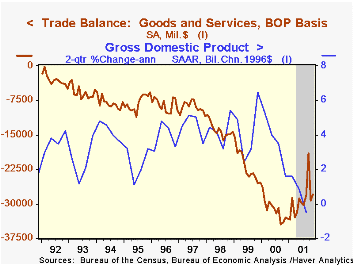
The US foreign trade deficit fell as expected versus October that was little revised.
Exports rose moderately, but remained down 14.8% from their peak in August 2000.Exports of goods fell moderately and were down 16.6% from their peak.
Imports fell, reflecting the U.S. recession. Imports of goods fell 1.6 %, the eighth monthly decline of the year. Goods imports were down 15.3% from the September 2000 peak.
Imports of capital goods fell for the ninth month of the year and were down 25.5% from the peak. Conversely, imports of non- automotive consumer goods rose slightly and were down 7.4% from their peak.
Imports of industrial materials fell 7.8%,the seventh consecutive monthly decline. Crude oil prices fell further.
| Foreign Trade | Nov '01 | Oct '01 | Y/Y | 2000 | 1999 | 1998 |
|---|---|---|---|---|---|---|
| Trade Deficit | $27.9B | $29.3B | $33.0B(11/00) | $375.7B | $261.8B | $166.8B |
| Exports - Goods & Services | 0.7% | 1.1% | -13.6% | 11.3% | 2.6% | -0.2% |
| Imports - Goods & Services | -0.8% | 11.7% | -14.1% | 18.2% | 10.9% | 5.4% |
by Tom Moeller January 18, 2002
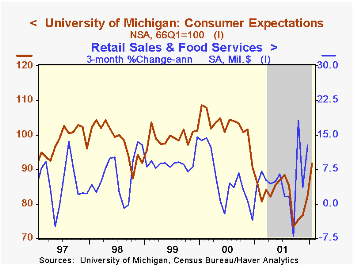
The University of Michigan’s Index of Consumer Sentiment unexpectedly rose more than expected in early January. Little change from December had been expected.
The 6.1% m/m rise reflected a sharply higher reading of expectations but a lower reading of current economic conditions.
The figures are not seasonally adjusted.
| University of Michigan | Mid-Jan '02 | Dec '01 | Y/Y | 2001 | 2000 | 1999 |
|---|---|---|---|---|---|---|
| Consumer Sentiment | 94.2 | 88.8 | -0.5% | 89.2 | 107.6 | 105.8 |
Tom Moeller
AuthorMore in Author Profile »Prior to joining Haver Analytics in 2000, Mr. Moeller worked as the Economist at Chancellor Capital Management from 1985 to 1999. There, he developed comprehensive economic forecasts and interpreted economic data for equity and fixed income portfolio managers. Also at Chancellor, Mr. Moeller worked as an equity analyst and was responsible for researching and rating companies in the economically sensitive automobile and housing industries for investment in Chancellor’s equity portfolio. Prior to joining Chancellor, Mr. Moeller was an Economist at Citibank from 1979 to 1984. He also analyzed pricing behavior in the metals industry for the Council on Wage and Price Stability in Washington, D.C. In 1999, Mr. Moeller received the award for most accurate forecast from the Forecasters' Club of New York. From 1990 to 1992 he was President of the New York Association for Business Economists. Mr. Moeller earned an M.B.A. in Finance from Fordham University, where he graduated in 1987. He holds a Bachelor of Arts in Economics from George Washington University.



